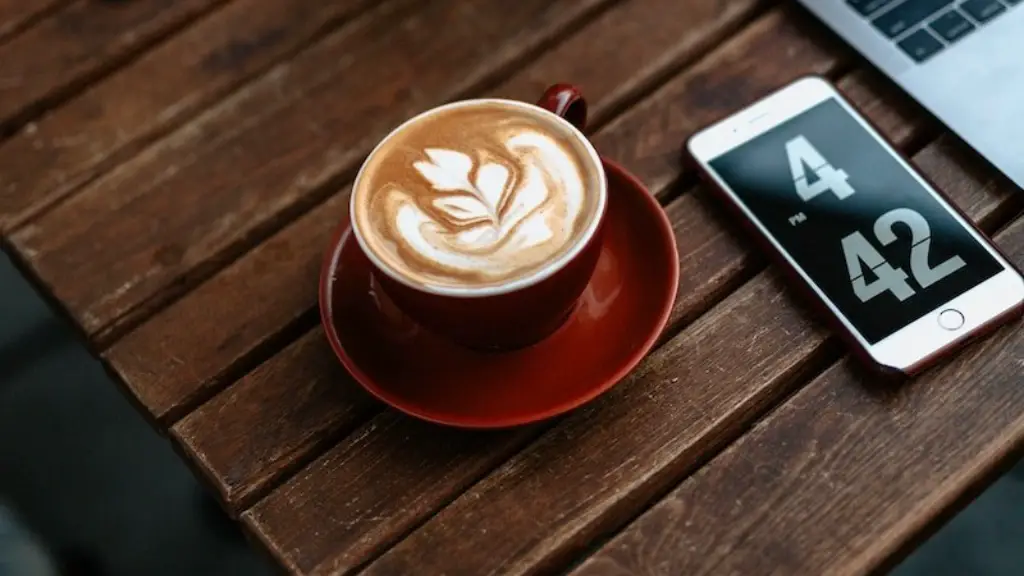Why You Should Never Drink Coffee on an Empty Stomach
Drinking coffee on an empty stomach can be detrimental to your health. The caffeine contained in coffee can lead to a rapid increase in your blood sugar level, which can cause a variety of unpleasant and uncomfortable symptoms. We aim to explain why you should never drink coffee on an empty stomach and provide tips on how to avoid it.
It is widely known that caffeine has a stimulating effect on us. It stimulates our heart and nervous system, causing them to work faster. When taken with no food, this stimulation is even stronger, causing blood sugar levels to rise rapidly. This can lead to symptoms such as headache, dizziness, nausea, irritability, insomnia, and more.
Caffeine is also known to interfere with the absorption of essential vitamins and minerals. When taken with no food, these vitamins and minerals are unable to be absorbed and can be flushed from the body when drinking coffee. This can lead to a variety of deficiencies and nutritional imbalances, which can affect your long-term health.
When consumed without food, coffee is also known to increase the production of stomach acid, which can cause irritation, pain, and discomfort. It can also worsen existing gastrointestinal problems, such as GERD and IBS. Furthermore, caffeine can also aggravate ulcers and increase the risk of developing one.
To ensure optimal health and wellbeing, drinking coffee on an empty stomach should be avoided at all costs. Taking the time to have a healthy snack before consuming coffee can help limit the undesirable effects of caffeine. Choosing snacks that are high in fibre, such as fruit, nuts, and whole grains, can slow the absorption of sugar, thus keeping your blood sugar levels more stable.
It is also important to limit your intake of caffeine. The recommended daily intake is no more than 400 milligrams, which is equivalent to 4 cups of coffee per day. Drinking caffeinated beverages late in the day can also negatively impact your quality of sleep, so it is best to avoid them.
Drinking coffee on an empty stomach can lead to a variety of unpleasant consequences for your body and mind. It can cause a rapid increase in blood sugar levels, interfere with the absorption of essential vitamins and minerals, and lead to symptoms such as headache, nausea, and insomnia. Taking the time to have a healthy snack before consuming coffee, limiting your caffeine intake, and avoiding caffeine late in the day can help manage these effects.
What You Should Eat Before Drinking Coffee
Taking the time to include healthy and nutritious snacks before drinking coffee is the key to avoiding the detrimental effects of caffeine on an empty stomach. Some ideas for snacks include fruits and vegetables, whole grains, nuts and seeds, dairy, and lean proteins such as legumes and fish.
Fruits and vegetables are a great source of vitamins and minerals, which help support your energy levels throughout the day. Whole grains, such as oatmeal and whole-grain bread, are high in fibre and can help to keep blood sugar levels stable. Nuts and seeds are also a great source of nutrients and healthy fats, and can also help to satisfy your hunger.
Dairy products such as yogurt, cheese, and kefir are a great source of protein and probiotics, which help promote healthy gut bacteria and digestion. And finally, lean proteins such as legumes and fish are also a great way to satisfy your hunger and get essential vitamins and minerals.
The Benefits of Avoiding Coffee on an Empty Stomach
Making the effort to avoid drinking coffee on an empty stomach can provide great benefits to both your physical and mental health. Firstly, it can help to limit the adverse affects of the caffeine, such as headaches, dizziness, and nausea. It can also help to improve your mood and energy levels throughout the day.
Secondly, drinking coffee on a full stomach can help to improve the absorption of essential vitamins and minerals. This can mean better long-term health, as well as improved cognitive functions. And finally, making healthy snack choices before drinking coffee can help to prevent weight gain and other related health problems.
Tips For Avoiding Coffee on an Empty Stomach
Making the effort to avoid drinking coffee on an empty stomach can be easier said than done. Here are some tips that can help:
- Always have a healthy snack before consuming coffee.
- Choose snacks that are high in fibre, such as fruits and whole grains.
- Limit your intake of caffeine to no more than 400 milligrams per day.
- Avoid drinking caffeinated beverages late in the day.
- Aim to include a variety of healthy foods in your diet each day.
Conclusion
Drinking coffee on an empty stomach can be detrimental to your health in a variety of ways. It can lead to rapid increases in blood sugar levels, interfere with the absorption of essential vitamins and minerals, and worsen existing gastrointestinal issues. Making the effort to always have a healthy snack before consuming coffee, being aware of your caffeine intake, and avoiding caffeine late in the day can help to minimise the unpleasant effects of drinking coffee on an empty stomach.



